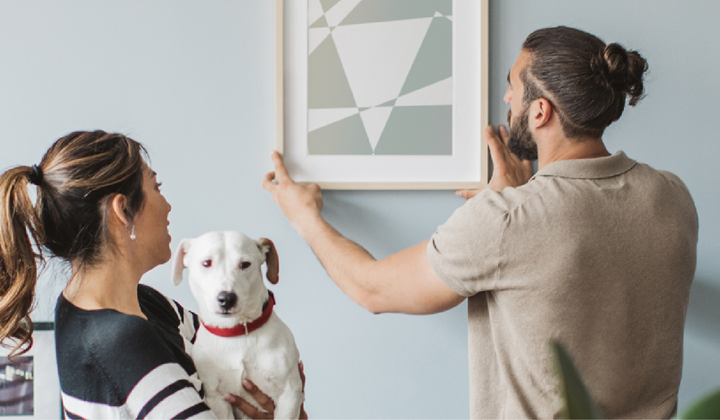

How to buy your first home
The hardest part of buying your first home isn’t necessarily paying the mortgage – although that can be challenging. Rather, it's often saving a large enough deposit to qualify for a loan.
What makes the deposit hurdle tricky is that it's been getting higher. Between March 2020 (when the pandemic started) and August 2024, the national median property price increased 37.8%, according to CoreLogic. For some first-home buyers, prices have been rising faster than their capacity to save.
However, there are steps you can take to not just enter the market, but potentially do so faster than you thought possible.
To begin with, look for opportunities to increase your savings rate. This could be done by increasing your income (which, admittedly, is easier said than done), reducing your expenses or both.
If you're able to build your savings through tax refunds, parental gifts or inheritances, that would be helpful. Please note, though, that when lenders review your mortgage application, they'll look not just at how much money you've saved but also how much of this money is ‘genuine savings’ (i.e. the result of recurring rather than one-off factors). Lenders want to see a history of genuine savings, because that reassures them you'd have the ability to make mortgage repayments month after month after month.
LMI explained
One way to buy your first home sooner is to do so with less than a 20% deposit.
Generally, if your deposit is below this threshold, you will need to pay lenders mortgage insurance (LMI) – an insurance product designed to protect the lender in the event you default on your loan – although exceptions apply. Some professionals, such as doctors, lawyers, engineers and accountants, may be able to put down less than a 20% deposit without paying LMI, because they tend to have larger and more secure incomes, and therefore pose a lower risk for lenders.
No one likes paying LMI. However, in a rising market, paying LMI could potentially save you money in the long run by allowing you to buy a property sooner (i.e. when prices are lower).
How to avoid LMI
There are a couple of other ways you could put down less than a 20% deposit and avoid LMI.
One way is to ask eligible family members to guarantee your loan, assuming they own their own home. In that case, you might be able to contribute a deposit of as little as 5% or even 0%; the rest of the 20% deposit would be secured against the equity in your guarantor’s home. After a few years, once you'd built up 20% equity in your property, through a combination of paying down the loan and having the home rise in value, you could refinance and remove your guarantor from the loan. In the meantime, though, your guarantor would be legally liable for your mortgage, so if you failed to make your repayments, the lender could potentially seize their home. That's why it's important for all parties to get professional advice before proceeding with a guarantor home loan.
Another way is to take advantage of the federal government's First Home Guarantee or Regional First Home Buyer Guarantee schemes, which allow you to buy a property with a deposit of as little as 5% without having to pay LMI. However, eligibility criteria apply, including income caps – your income must be under $125,000 if you're buying on your own or a combined $200,000 if buying as part of a couple. Property price caps also apply – these range from $400,000 in the Christmas Island and Cocos (Keeling) Islands to $900,000 in Sydney.
How pre-approvals work
Regardless of how you plan to buy your first home, it's a good idea to first get a mortgage pre-approval, which is an in-principle (but not legally binding) indication from the lender that they'd be willing to lend you a certain amount of money.
A pre-approval provides peace of mind that you can qualify for a loan. It also lets the vendor know you are a serious bidder.
I can help you secure a pre-approval. I can also provide you expert advice on the entire buying and mortgage process. Contact me to discuss your options.
